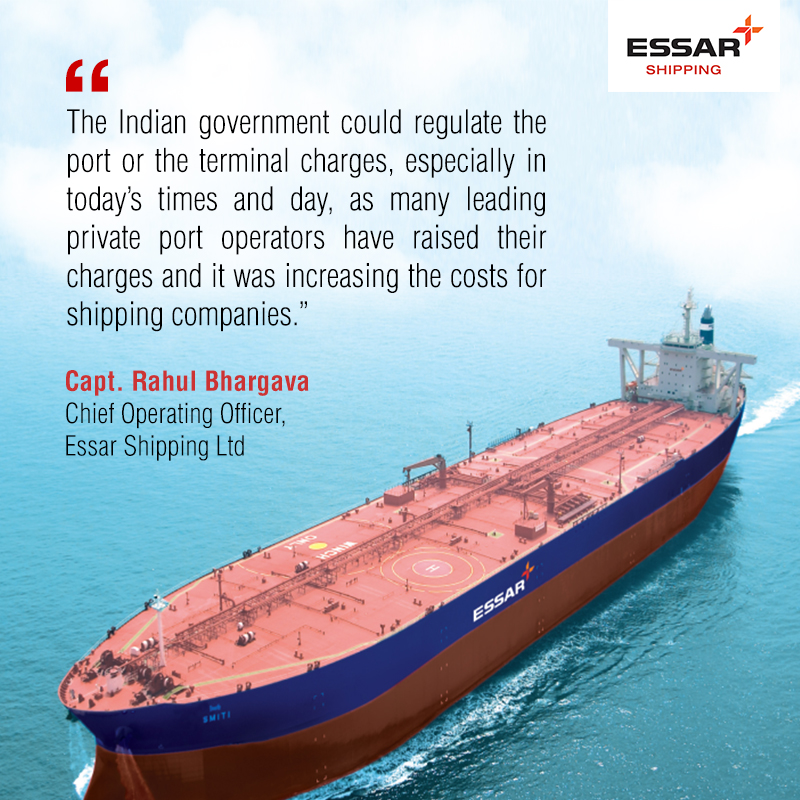
The Indian government could regulate the port or the terminal charges, especially in today’s times and day, as many leading private port operators have raised their charges and it was increasing the costs for shipping companies, Capt Rahul Bhargava, Chief Operating Officer, Essar Shipping Ltd, recently said at an international virtual summit on global supply chain and logistics.
Capt Bhargava was responding to the opening remarks in the discussion over the possibility of the Indian government regulating the freight charges.
“The new merchant shipping act is now public but it is yet to be notified into a law. The government has been taking a number of steps in the right direction, however, there is a lot to be done. There is a thought of regulating freight charges within the current government however it could think of regulating port or terminal charges as it is becoming expensive for shipping companies, especially at some ports run by private operators whilst freight rates are dependent on various factors such as bunker prices , demand & supply and global economics” Capt. Rahul Bhargava said recently at an international virtual summit hosted by Logistics Insider and LinkedIn with the theme of “Global supply chains on the Qui Vive”.
The Summit was beamed live on LinkedIn and other panelists on the programme were Mr. Charles Brewer, COO, Canada Post and former head, DHL E-commerce. Mr. Ruwan Waidyaratne, MD, Hayleys Avantis and Mr. Nikhil Jain, Chief Technical Officer, Seros Logistics.
The event started with a discussion on the impact of Covid-19 pandemic on the logistics sector affecting global supply chain and then went on to further discuss the road to recovery in the maritime sector, its digital transformation, the long standing concerns about congestion at major ports in India and the imminent switch from retail to digital model of business in the shipping and logistics industry.
Capt. Bhargava also observed that there could be a possible shift of trade and manufacturing for the global logistics and shipping industry from China to other countries.
“During the pandemic, many countries shifted base from China to Southeast Asian countries like Vietnam, Thailand, Bangladesh etc. It has happened in the IT sector which has moved to Vietnam, Thailand and Laos. A similar situation was witnessed in the eighties and nineties when ship building shifted to South Korea & Singapore as Japan became an expensive destination,” he said.
Speaking on if the quality of goods , he commented, initially the quality of goods had deteriorated after moving to South Korea but later picked up and saw improvement, he added.
“We witnessed the same pattern when the base shifted from South Korea to China. The world is expected to see this shift again from China to other countries, he emphasized.
On the adaptation of technology and digital transformation, Capt. Bhargava reiterated that the Indian shipping industry will be hugely beneficial by adaptation of technologically advanced systems such as drones and machine learning in order to be more” future ready.
He said newer technologies such as drones have become very popular and needs to be implemented across the industry and can execute challenging manual tasks with ease. “Use of technology has now moved a step forward with use of drones with cameras to inspect the ship, this becomes very cost effective especially for larger ships. It is time to move away from the traditional conventional method and adapt to new technologies, Capt Bhargava said adding that use of technology reduces operational expenses and thus the benefit can be passed on to the clients.